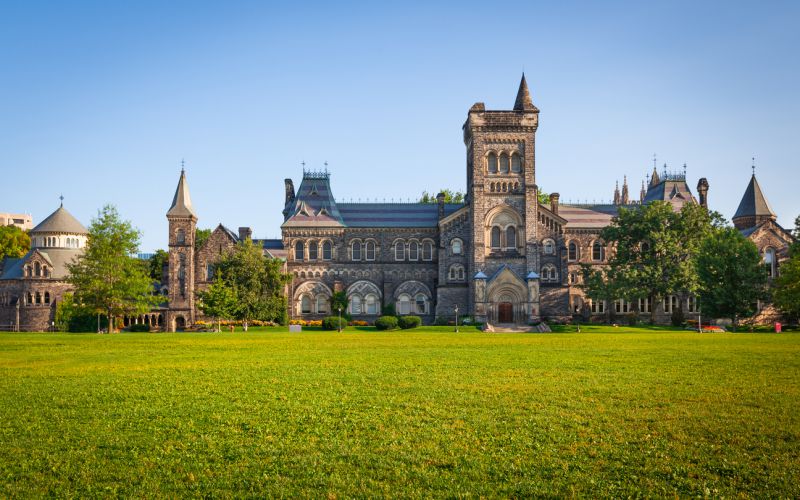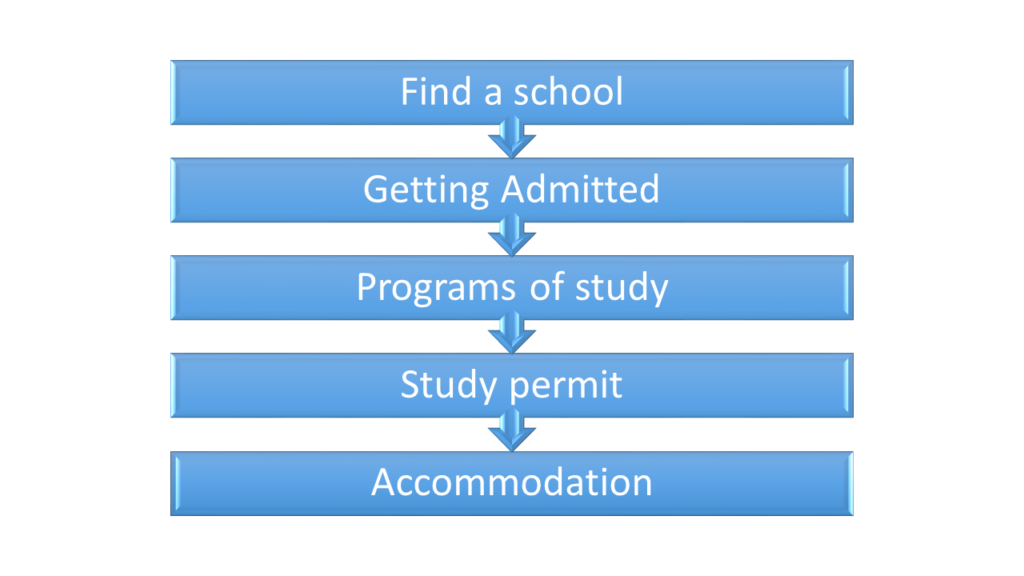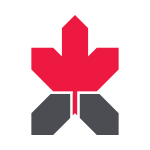
Study in Canada
Generally, before doing anything you need to decide on your destination to study by exploring the universities and colleges in that specific province. Once the school is selected, a formal admission into the program is required to obtain a study permit, if needed. The following chart shows the common pathway to study in Canada.
Canadian Colleges
Canadian Colleges of applied arts and technology have full-time and part-time diploma and certificate programs offering Bachelor degrees in applied areas of study. Colleges are more directly career-oriented than universities by offering practical or hands-on training. Generally, a certificate program is 1 year or less, and a diploma program is 2 or 3 years. Colleges also have pre-trades and apprenticeship training, language training and skills upgrading.



Canadian Universities
Universities are institutions that can grant degrees including undergraduate (bachelor’s) degrees, and graduate (MSc. or PhD) programs. Undergraduate degrees usually take 3-4 years to complete, if you study full-time. An “honours degree” (the fourth year) is usually required if you want to go to a graduate program (Master’s degree). Many universities allow students to combine subject areas (e.g., a Bachelor of Science in Chemistry and Biology) into a “double major. Many universities also offer professional programs, such as medicine, dentistry and law. In some cases, you can begin these programs after 2 or 3 years of undergraduate study.
Designated Learning Institutes
To apply for a study permit, an acceptance letter from a designated learning institution is required. A designated learning institution (DLI) is a school approved by a provincial or territorial government to host international students.

